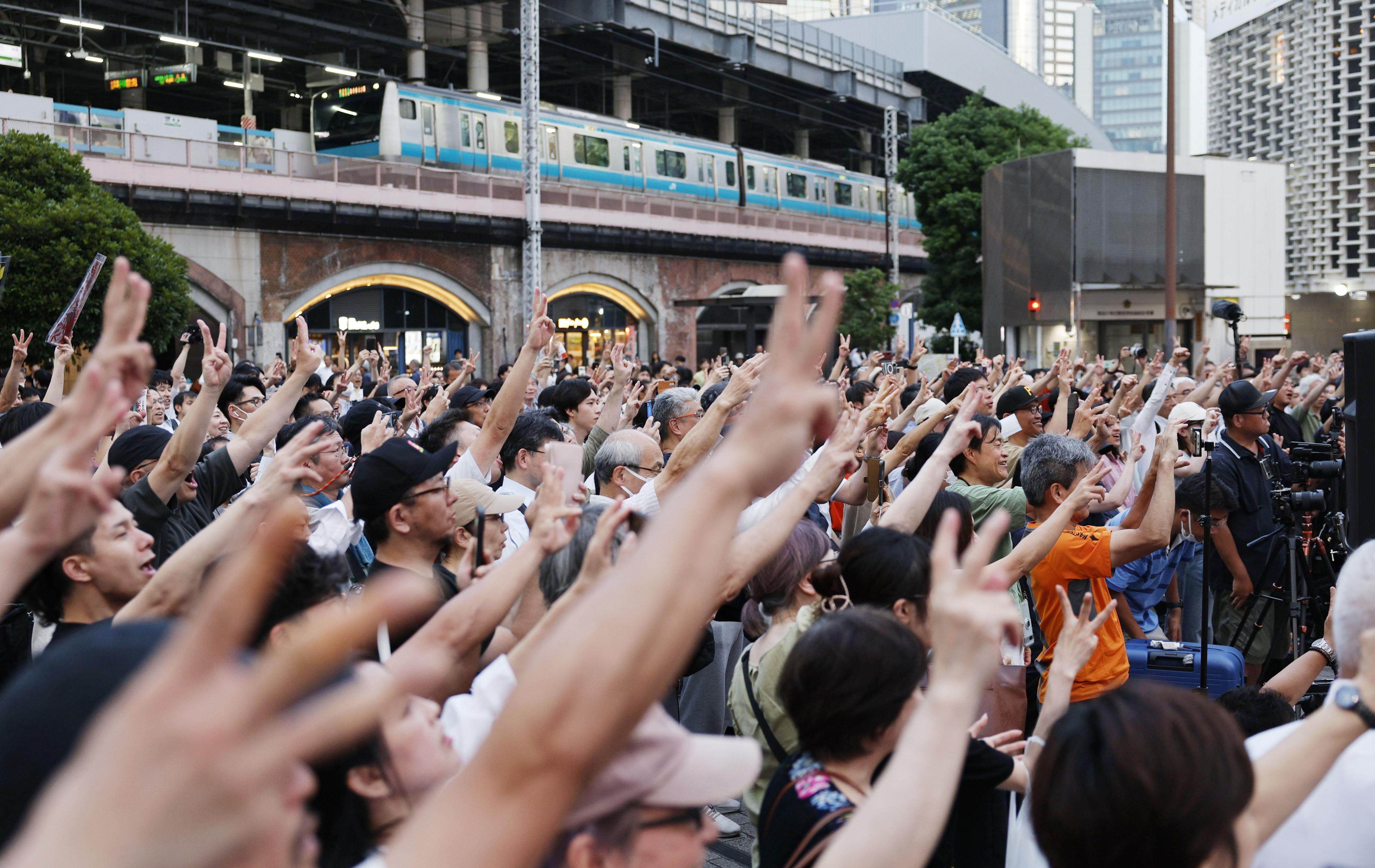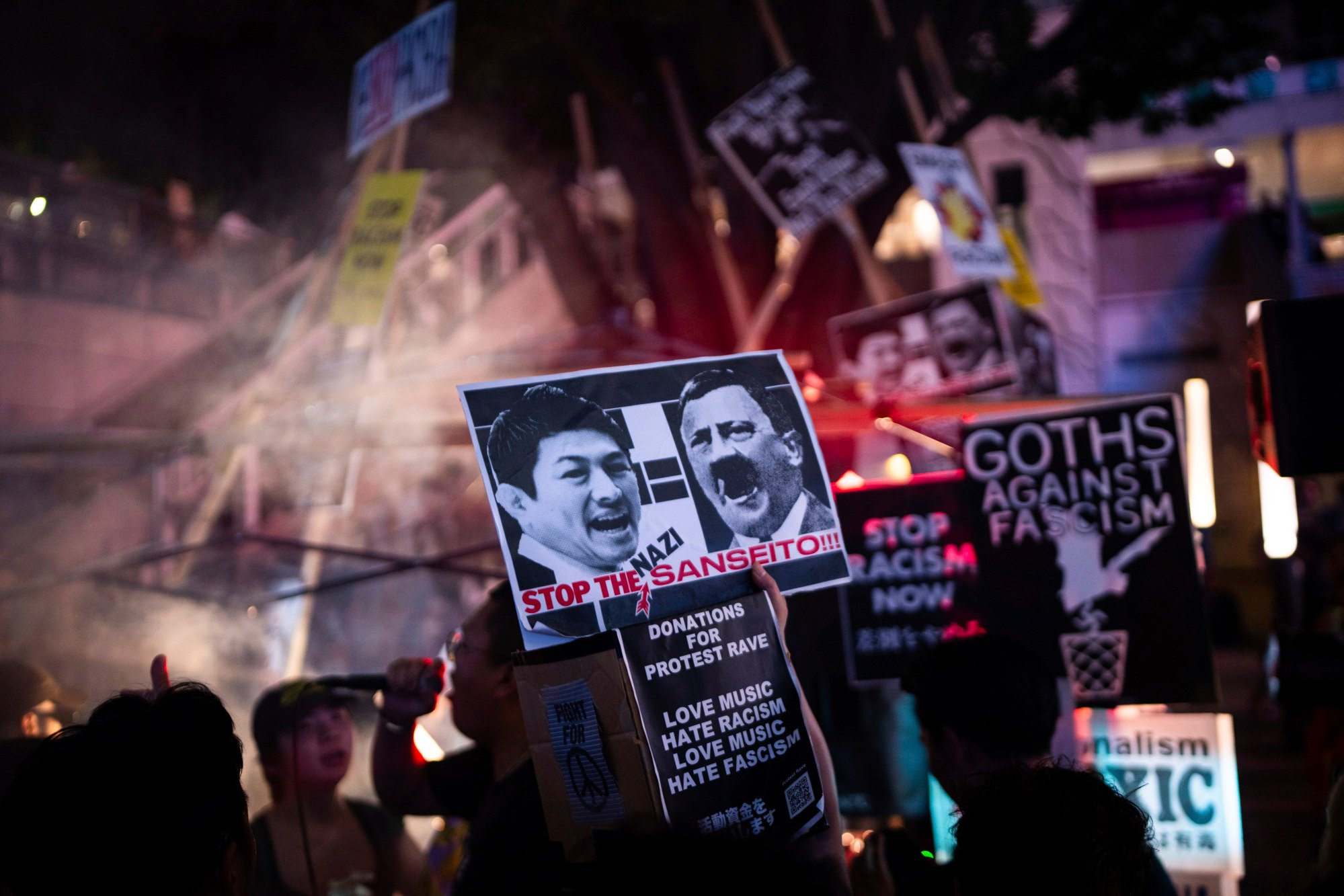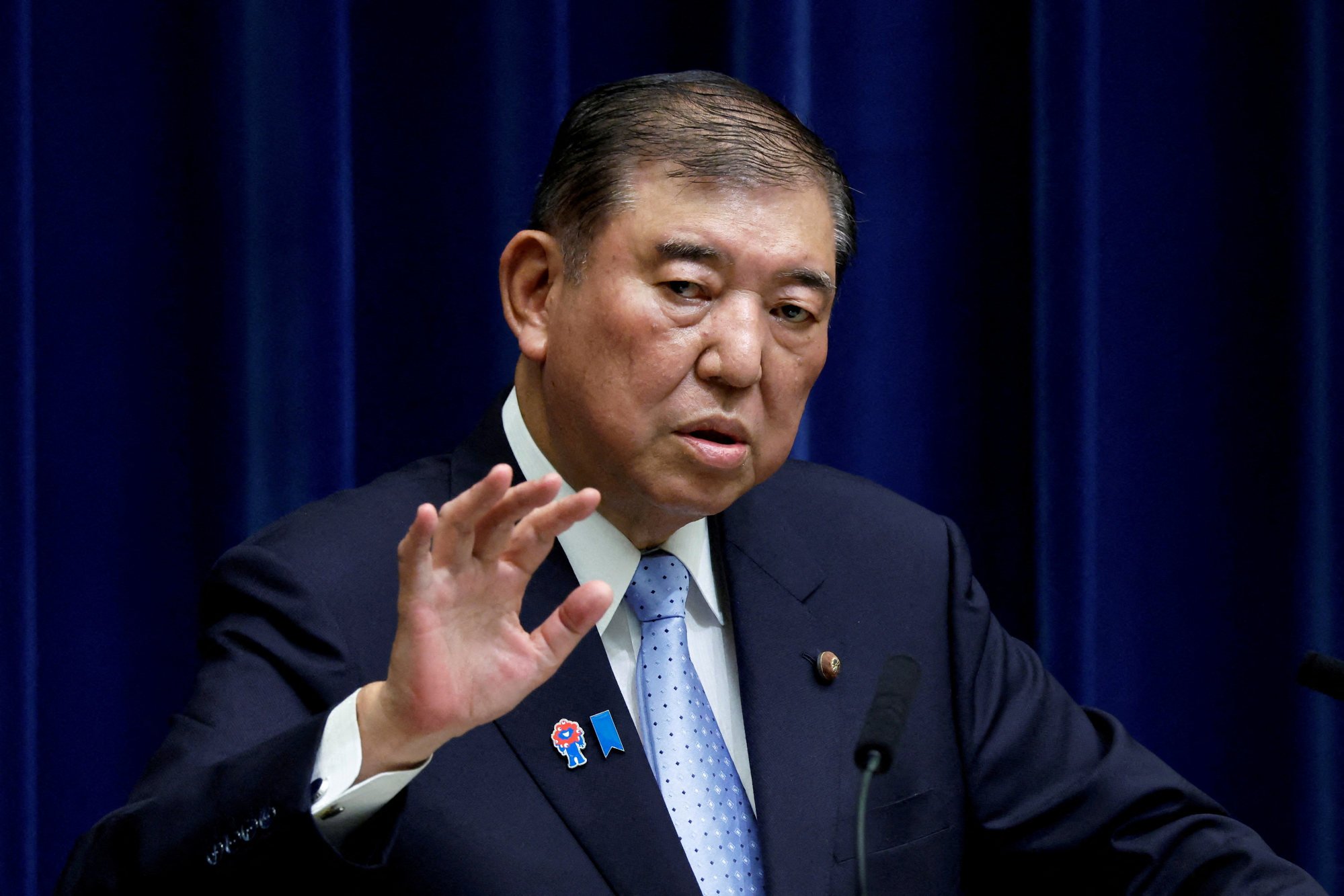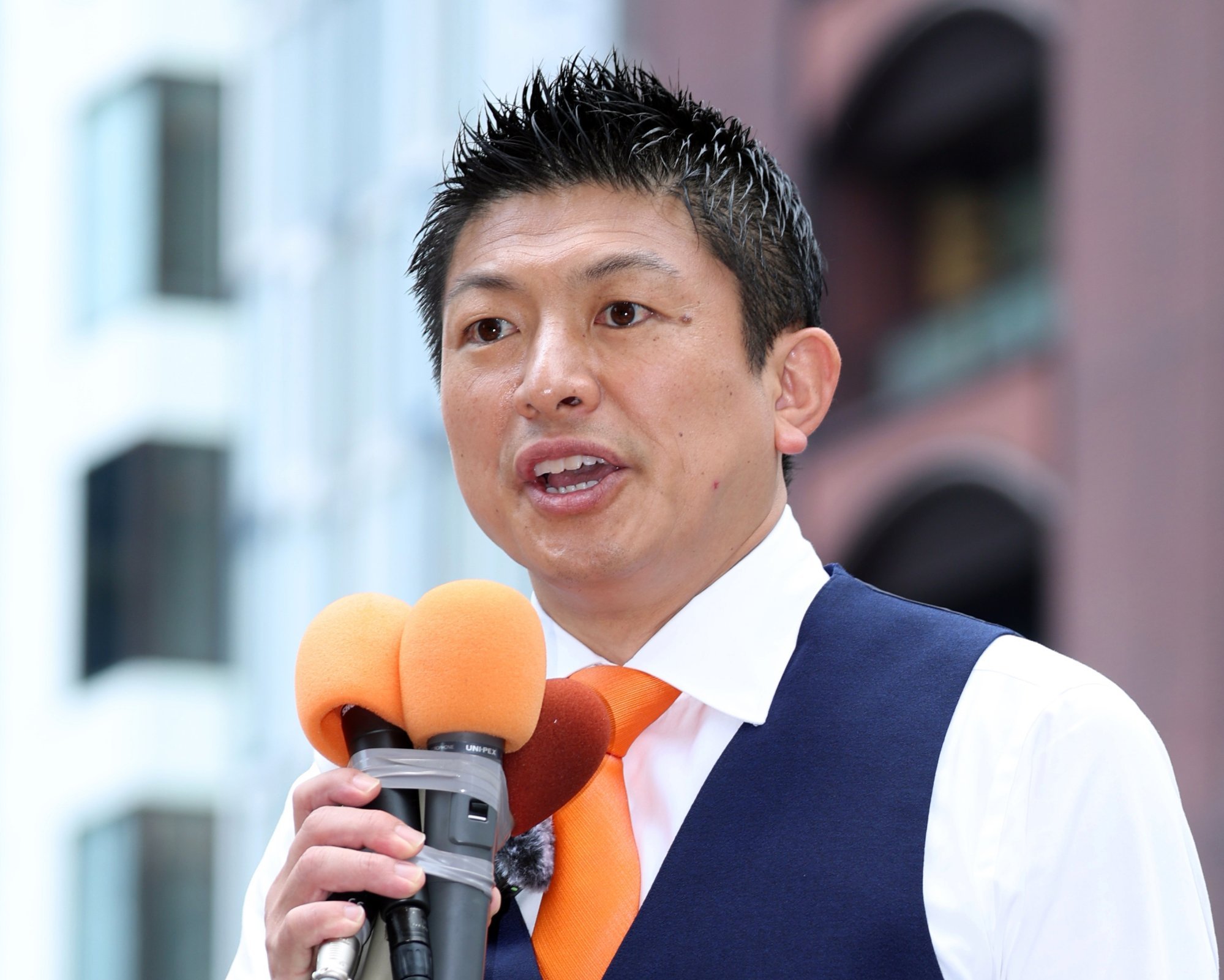Will Japan’s anti-immigrant far-right parties win more votes in key election?
Ahead of the House of Councillors election on Sunday, rival parties are stepping up their rhetoric over the presence of foreigners in Japan

As Japan heads into a pivotal upper house election, populist parties on the far-right are seizing on anti-immigrant rhetoric to win over voters, echoing the strategies of US President Donald Trump’s Republicans and hard-right movements across Europe.
While candidates from across the political spectrum in Japan campaign on familiar issues such as inflation, jobs and defence, a surge in anti-immigrant messaging has also reframed the national conversation ahead of the House of Councillors election on Sunday.
The shift is being driven by the rise of ultraconservative groups like Sanseito, a party founded in 2020, which is polling fourth in opinion surveys among the 10 parties contesting the election. While Sanseito’s support remains modest – just 5.9 per cent according to a July 11 NHK poll – more than 33 per cent of voters say they are still undecided.
With the ruling Liberal Democratic Party (LDP) struggling to rebound from a string of scandals and polling at just 24 per cent, political analysts say the election could produce a hung result, forcing the LDP to negotiate with smaller parties to retain power.
That may give hardline groups such as Sanseito or other right-leaning contenders – the Conservative Party of Japan (CPJ), the Japan Innovation Party (Ishin), or the Democratic Party for the People (DPFP) – the leverage to demand a role in government or even a cabinet seat, according to analysts.
Hiromichi Moteki, a conservative historian who lives in Tokyo, used to be a supporter of the LDP but has grown disillusioned by its present leadership, dismissing Prime Minister Shigeru Ishiba as “hopeless”.
“I’m voting for Sanseito because it is the only party that really shares my conservative principles,” he told This Week in Asia.

Moteki said his decision to switch party allegiance could be traced to the LDP permitting same-sex marriages, which he referred to it as “the LGBTQ problem”, adding that he would not back a woman sitting on the Chrysanthemum Throne and was a firm supporter of a powerful Japanese military and a tougher policy against China – these views also mirror Sanseito’s positions.
Noting Sanseito’s proposal to ban low-skilled economic immigrants, Moteki said law-abiding foreigners with the skills that could benefit Japan should be allowed to work in Japan.
“Any foreigner that commits a crime should leave the country. It is true that Japan has a severe labour shortage, but companies need to find better ways to solve that problem other than importing low-skilled labourers. Just bringing in more foreigners does nothing to solve our own productivity problems,” he said.
Foreign people should not be eligible for social security if they are not working, according to Moteki.
Since March, there were been many posts on social media claiming that one-third of the households in Japan that were receiving welfare support were foreigners, the Asahi newspaper reported on Friday. Figures from the Ministry of Health, Labour and Welfare, however, put the actual figure at less than 3 per cent.
Unhandled type: inline-plus-widget {“type”:”inline-plus-widget”}
Crime is another hot topic in online forums, with the media quick to highlight crimes committed by foreigners, such as US troops in Okinawa prefecture or within the ethnic Kurdish community that has congregated in Saitama prefecture, north of Tokyo.
The number of foreigners arrested for criminal offences in Japan fell to 9,726 in 2023, from 10,963 in 2000. Over the same period, the proportion of foreigners in Japan’s total population rose to 2.5 percent from 1 per cent.

A justice ministry annual white paper on crime has shown that the ratio of arrested foreigners to the total number of foreign residents decreased to 0.3 per cent in 2023, from 0.8 per cent in 2000.
Nevertheless, smaller right-leaning parties have targeted sentiment against foreigners to win votes. Among them, the DPFP has vowed to “investigate” foreigners obtaining welfare help and to “establish a law to regulate the acquisition of land by foreigners”, while Ishin aims to “formulate a population strategy that includes curbing the rising ratio of foreigners”.
In response to the ground sentiment, the LDP and its coalition partner Komeito have unveiled new proposals targeting foreign nationals in Japan. The LDP has introduced new curbs on foreigners having driving licences and is scrapping support payments for foreign PhD students while pledging to step up efforts to achieve “zero illegal foreigners”.
Komeito, a Buddhist-backed political party, intends to remove all foreigners who have overstayed their visas and introduce new rules to ensure non-Japanese pay for their social security.
Yuichi Kujirai, a 32-year-old from Tokyo who is training to be a doctor, is horrified at the recent rise of right-wing parties, which he said was a result of the lingering political influence of the late former prime minister Shinzo Abe. In contrast, Abe’s successors – Fumio Kishida and the present prime minister, Shigeru Ishiba – were seen as centre-left in their views and this has alienated many LDP voters, according to Kujirai.
“It is in response to these leaders that parties such as Sanseito and the Japan Conservative Party have grown and shifted the ideology of Abe further to the right,” he told This Week in Asia.
Kujirai, who will be voting on Sunday, said Sanseito’s philosophy was “quite radical” and its support base had “increased abnormally” over a short span of time.

Part of its appeal was its party leader Sohei Kamiya, Kujirai said. Sanseito is trying to divert voters’ attention away from Japan’s core challenges such as economic stagnation and the declining birth rate and focus on foreigners, according to Kujirai.
“They try to give ordinary people the impression that foreigners living in Japan are only here to claim welfare and scholarships, that foreigners are treated better than Japanese citizens and that they cause most of the crime,” he added.
Of particular concern to Kujirai is the intention of Sanseito to bring back the constitution during the years of Japan’s expansionism with the emperor ruling over the country and the military in the ascendancy again.
“There have been reports in recent days of Sanseito lodging complaints with media outlets that question their discrimination against foreigners and clashes with people protesting their views. They are like the followers of a religious cult,” he said.